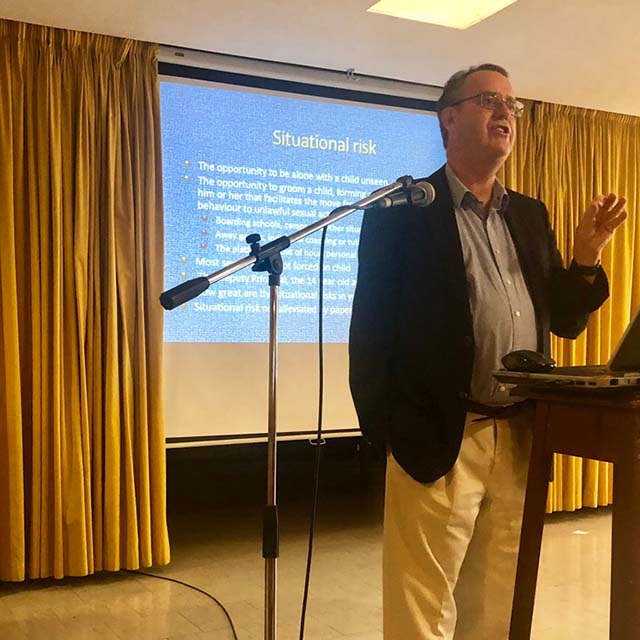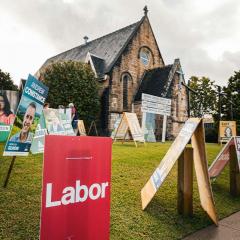 In a nation described by a World Bank report as “one of the most unequal”, a University of Queensland Law School expert has detailed the correlation between child sex abuse and poor socio-economic groups.
In a nation described by a World Bank report as “one of the most unequal”, a University of Queensland Law School expert has detailed the correlation between child sex abuse and poor socio-economic groups.
Presenting as keynote speaker at the Make the Safety of Children Happen conference in Pretoria, South Africa, Head of School and family law expert Professor Patrick Parkinson discussed groups at high risk of abuse, and outlined the risks of inadequate responses.
Professor Parkinson said research proved victims of child sex abuse were more likely to come from unhappy families characterised by divorce, separation and discord.
“We see clusters of this abuse occurring in lower socio-economic areas, where there is welfare dependency for single mothers, and lower housing costs,” Professor Parkinson said.
“Perpetrators target children who are socially isolated and have poor self-esteem.
“Generally, in these circumstances there is either less parental supervision occurring, or a greater number of non-biologically related adult males in the home.
“This is also the raised prospect of abuse from step-siblings.”
A 2018 World Bank report listed South Africa and neighbours Namibia and Botswana as the three most unequal countries in the world.
The report found the top one per cent of South Africans owned 70.9 per cent of the country’s wealth, while the bottom 60 per cent control just seven per cent of the nation’s assets.
The groups worst affected by poverty were black South Africans, the unemployed, the less educated and female-headed households.
Professor Parkinson also discussed the risks within schools and institutions, including in religious settings, and shared learnings from global experiences into how to work towards sustainable child protection by improving laws, policies and practices.
“While there are many challenges in translating approaches to family law between cultures, often ideas from one system may spark new ideas for what can work in another system or culture,” he said.
“It is crucial that researchers and policy makers start global conversations and share insights in this important area to protect the vulnerable, despite the challenges of the subject matter.”
Professor Parkinson’s address to the Make the Safety of Children Happen conference was part of a larger tour, which also saw him deliver a guest lecture at the University of South Africa, and meet with the South African Law Reform Commission, among other engagements.
The tour was funded in part by the South African National Research Foundation, and highlighted much of Professor Parkinson’s work in the 2017 report to the Royal Commission into Institutional Responses to Child Sex Abuse.
Contact: BEL Communications, media@bel.uq.edu.au



